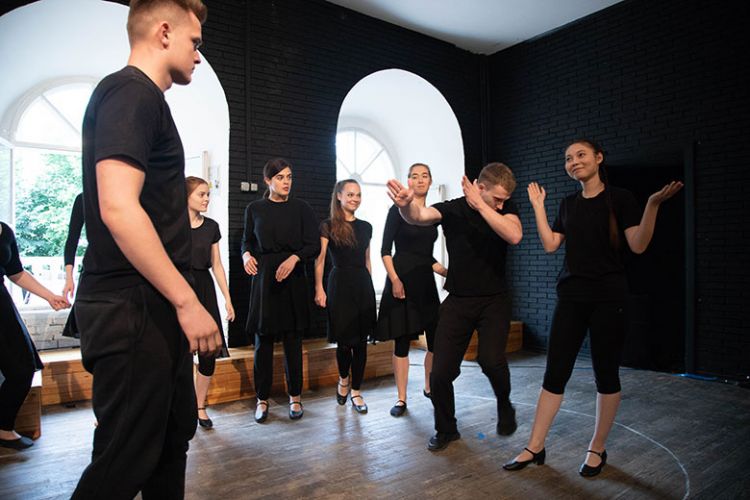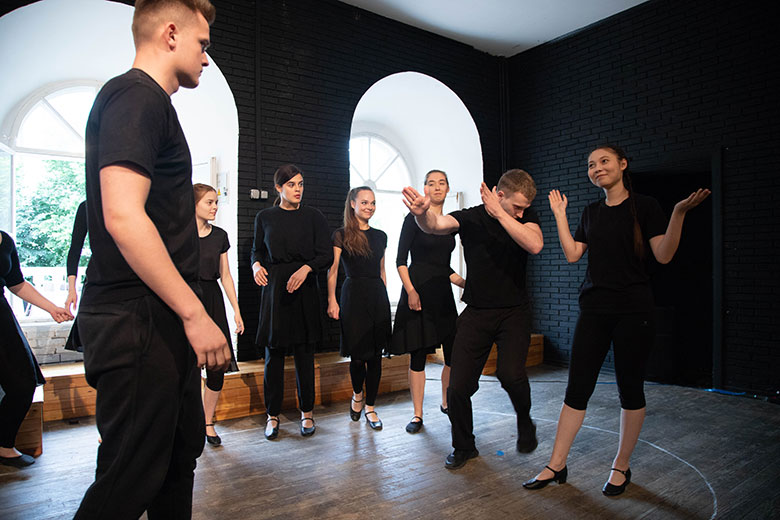Setting the stage for great acting talent

An in-depth knowledge of dramatic fundamentals and a progressive attitude can usher in a new wave
Russian theatre has a storied history and a formidable reputation, but at the Russian Institute of Theatre Arts (GITIS), acting students are instructed not to stand on ceremony.
As an institution, GITIS was the first of its kind to teach theatre at higher education level, and it is acutely aware of its past, yet its teaching always faces forward. Its acting students are thoroughly immersed in both the history and the fundamentals of their craft, before being encouraged to put their own stamp on it. That is how Rimas Tuminas, artistic director of the GITIS actors’ workshop and the Moscow Vakhtangov theatre, learned when he arrived at GITIS from the Conservatory of Lithuania to study directing under the legendary Joseph Tumanov in 1978.
“GITIS gave me a lot as far as professional setting is concerned,” says Professor Tuminas. “Once again, I became an apprentice, went through the whole process in detail, studied the methodology thoroughly. Tumanov was a real leader: responsible but demanding. He would come in every Friday, look at our work and analyse it in detail. He used to say, ‘Don’t just sit in GITIS. Once you are here, loot Moscow! Theatres, museums, concerts: they are all yours.’ I think he wanted to get everything out of us.”
The distance between the stage and the classroom is short at GITIS, where the teaching staff are impeccably credentialled in the Moscow theatre scene. There is also an ecosystem of interfaculty collaboration that provides acting students with the opportunity to hone their craft together and to push the arts forward as they think deeper and provoke themselves.
Professor Tuminas describes GITIS as “a school of revolution”. To that end it is always looking to find the acting talent of the future, then nurture it. “Every five or six years [theatre] goes through changes,” he says, hinting at subtle generational shifts that take place over time. “For example, after the demise of our most iconic directors, we found ourselves in a creative vacuum. Of course, there are young, promising graduates of theatre universities, but their works do not become a phenomenon in Moscow theatrical life. They are trying things out, finding their way.”
GITIS plays a key role in helping new actors find their voice. The challenge from there is to engage audiences in an era of technological distractions – and possibly to “loot” the digital platforms that can now be used both for performance and to identify the acting talent of the future. “Will it be possible, with the current abundance of modern technologies, to dazzle the audience with the inner world of a person, reveal their story, sympathise with them, and not with ourselves?” asks Professor Tuminas, posing a question that can drive GITIS’ honing of actors’ craft into the future.
Find out more about GITIS.
